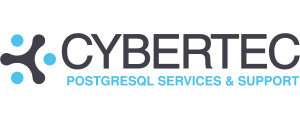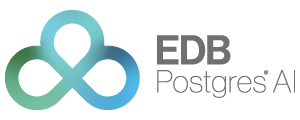Interview with EDB
Find out more about our sponsor EDB
Any views or opinions represented or expressed in this interview belong solely to the interviewee and do not necessarily represent those of the PostgreSQL Conference Europe 2024 organization, PostgreSQL Europe, or the wider PostgreSQL community, unless explicitly stated.
How does PostgreSQL help you bring value to your customers?
Enterprises are struggling to operationalize AI/ML solutions due to data silos and lack of a single data storage and management platform for transactions, analytics, and AI data. They’re also struggling with complex and involved pipelines that hamper their ability to get real-time insights from their operational data and ensure security, compliance, and observability across their data and infrastructure.
EDB Postgres AI extends enterprise-grade Postgres and allows developers to build AI and analytics applications seamlessly integrated with their enterprise’s structured, unstructured, and vector data assets—all on a highly scalable, secure, and production-ready data platform. EDB Postgres AI accelerates innovation while ensuring enterprise reliability and performance.
What is your PostgreSQL centered product?
EDB Postgres AI is the first unified data platform for transactional, analytical, and new AI workloads powered by an enhanced Postgres engine. It can be deployed as a cloud-managed service, self-managed software, or as a physical appliance. It delivers hybrid Database-as-a-Service automation, multi-model data support, built-in monitoring, AI-driven assistance, migration tooling, advanced security and compliance features, and a single pane of glass for managing hybrid data estates.
EDB Postgres AI helps elevate data infrastructure to a strategic technology asset by bringing analytical and AI systems closer to customers’ core operational and transactional data—all managed through the world’s most popular open source database, Postgres.
By better enabling analytics and AI workloads using the enterprise’s core operational database system, EDB Postgres AI provides the data platform foundation for next-gen apps while reducing infrastructure complexity, optimizing cost-efficiency, and meeting enterprise requirements for data sovereignty, performance, and security.
Which feature is missing in PostgreSQL?
EDB has focused on adding features missing in open-source PostgreSQL that large enterprises need to easily deploy PostgreSQL. Examples include Oracle compatibility, robust tooling, transparent data encryption, multi-active replication, data warehouse integration, and AI capabilities. The continual innovation of PostgreSQL is the foundation that keeps EDB solutions attractive.
Why does your company attend PostgreSQL Conference Europe?
EDB attends PGConf.EU to engage with the vibrant PostgreSQL community, share insights, and learn about the latest developments in the Postgres ecosystem. Our participation in these conferences underscores our commitment to driving innovation in Postgres and supporting its growth. These events offer a platform for collaboration, where we can both contribute our expertise and gain valuable knowledge from others in the field. This continuous exchange of ideas is essential for staying at the forefront of database technology and ensuring that our PostgreSQL-centered products and services remain cutting-edge and effectively meet the needs of our customers.
In which areas do you expect PostgreSQL to grow most and how does your company contribute to and benefit from that growth?
PostgreSQL's relevance as the world's leading database stems from its rapid innovation and flexibility. Today, as businesses undergo significant digital transformation, PostgreSQL is uniquely positioned to meet these new demands. It goes beyond traditional transactional workloads, offering a unified platform capable of handling database, data lake, data warehouse, and AI workloads.
This adaptability to the unique needs of modern enterprises is where PostgreSQL shows its true potential and where our company plays a key role in its growth and development, benefiting from its versatility and wide applicability in various technological domains. EDB has more Postgres technologists than any other company and a robust team of specialists across Kubernetes, vector databases, analytics, platform management, and more. We've driven 20+ years of Postgres innovation & adoption, with 3 core team members, 7 committers, 9 major contributors, 10 contributors, and the #1 site for desktop downloads.
Which of your company's contributions to the PostgreSQL Project (code/community/conference/sponsorship) are you most proud of?
EDB is proud of our longstanding history of significant contributions to PostgreSQL, working alongside a rich and robust independent community. EDB’s Postgres training is free and accessible to all, reinforcing our commitment to supporting the growth and success of Postgres in the long term.
Our contributions to PostgreSQL 15, including the highly anticipated MERGE SQL command, highlight our commitment to enhancing PostgreSQL's capabilities. This command simplifies the migration process from legacy databases to PostgreSQL, making it more accessible for enterprises. More recently, the EDB Postgres 16 Portfolio release introduced new tools to optimize compliance, performance, security, and Oracle compatibility, demonstrating our ongoing efforts to keep PostgreSQL at the forefront of technological innovation.
Incremental backup, to be released as part of PostgreSQL 17, makes it possible to use PostgreSQL for larger mission-critical applications with demanding DR requirements. We are proud to have contributed to that enhancement.
What makes your company a great place to work?
People want to be a part of an impactful company in the market. That starts with true category leadership and extends into software product leadership. This is EDB in the database category for Postgres. People also want to be a part of a company with heart. At EDB, we prioritize the well-being of the team and provide opportunities for personal growth, including the chance to learn emerging technologies.























